Prebiotics: 10 Foods That Will Help You Keep Your Gut Happy + 10 Must-Eats
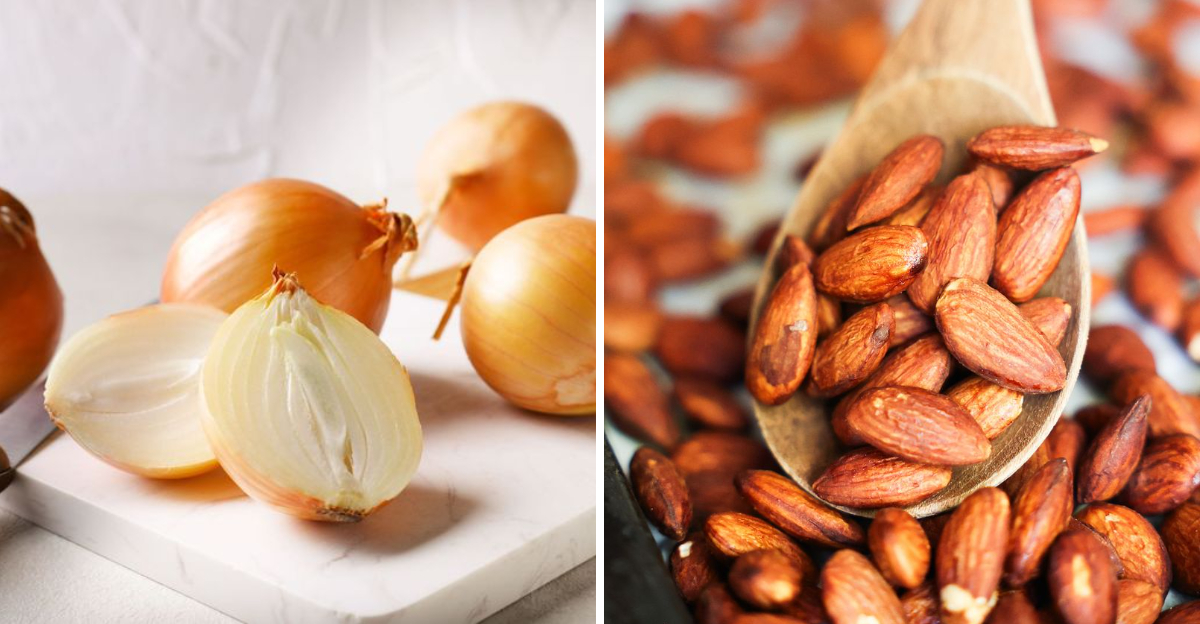
Feeding your gut the right foods is essential for digestive health, immune balance, and even mental clarity. While probiotics (like yogurt and fermented foods) get a lot of attention, prebiotics—non-digestible fibers that fuel healthy gut bacteria—are just as important. Here are 10 proven prebiotic-rich foods to incorporate and 10 additional must-eats that keep your microbiome thriving.
1. Garlic
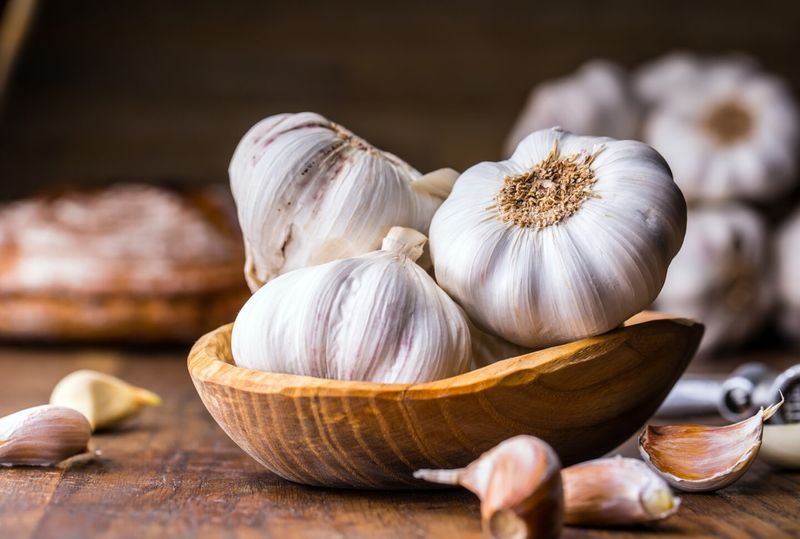
With a pungent aroma that permeates cuisines worldwide, garlic is more than just a flavor enhancer. Rich in inulin and fructooligosaccharides (FOS), it encourages the growth of beneficial Bifidobacteria while inhibiting harmful strains. This dual action helps maintain a balanced gut microbiota, essential for overall health. Garlic’s prebiotic properties are best preserved when it’s consumed raw or lightly cooked. A staple in Mediterranean diets, its health benefits extend beyond gut health, offering cardiovascular support too. Did you know? Ancient Egyptians used garlic both as food and medicine.
2. Onions

Onions, with their layered, papery skins, are a cornerstone in many culinary traditions. Loaded with inulin, they support a diverse, resilient gut microbiota, promoting optimal digestive health. Their natural sweetness emerges when sautéed, offering both flavor and prebiotic benefits. Historically, onions were cherished in ancient Greece for their therapeutic properties. Whether raw in salads or caramelized in dishes, onions are versatile allies in gut health. Fun fact: Ancient athletes believed onions enhanced strength, consuming them before events.
3. Leeks

Leeks, the milder, sweeter cousins of onions and garlic, boast an impressive prebiotic profile. A staple in French cuisine, they provide a gentle flavor that enhances soups and stews. Lightly cooking leeks preserves their essential nutrients, including inulin, which nourishes beneficial gut bacteria. This makes them a valuable component of a gut-friendly diet. Historically, leeks were favored by Roman emperors for their purported health benefits. Their subtle taste and health advantages make them a must-have for any culinary enthusiast.
4. Asparagus
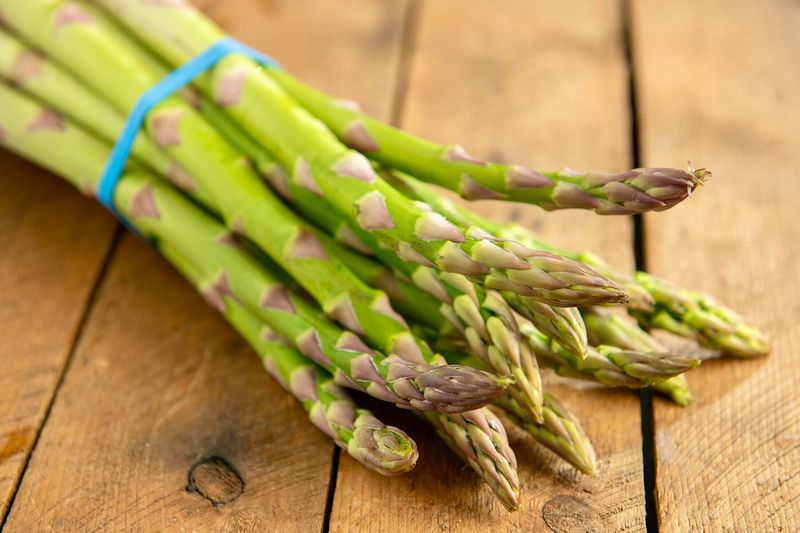
With its elegant, spear-like appearance, asparagus is a beloved vegetable for both chefs and nutritionists. When consumed raw or lightly steamed, it provides inulin, feeding beneficial bacteria and supporting immune health. This ancient vegetable has been savored since the times of the Pharaohs, known for its distinct flavor and health-promoting properties. Its versatility in dishes, from salads to side dishes, makes it a culinary favorite. Asparagus offers a delightful combination of taste and health benefits, ideal for a gut-friendly menu.
5. Bananas (especially slightly green)

Bananas, especially when slightly green, are a powerhouse of resistant starch, a key prebiotic fiber. This fiber helps improve digestion and blood sugar control, making bananas a popular choice for those seeking gut health benefits. The unripe form offers a subtle, starchy taste that complements smoothies and cereal bowls. Cultivated for centuries, bananas have journeyed from the tropical regions to become a staple worldwide. Their multifunctional nature and health advantages make them a versatile addition to any diet.
6. Chicory Root
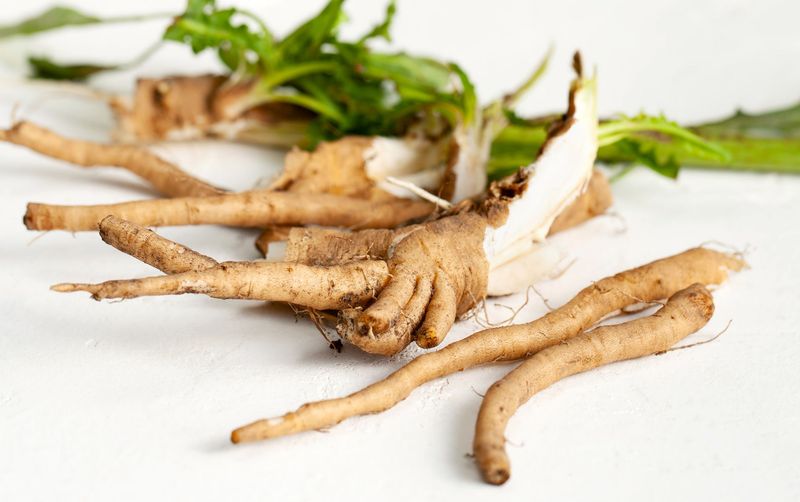
Chicory root, often hidden behind the scenes, is a powerhouse of inulin, one of the richest natural sources available. It’s commonly found in fiber supplements and as a coffee substitute due to its robust, earthy flavor. This root has been used for centuries, with roots tracing back to ancient Egypt. As a prebiotic, it fosters a healthy gut environment, promoting the growth of beneficial bacteria. Its versatility and health benefits make chicory root an excellent addition to any diet, especially for those seeking a caffeine-free alternative.
7. Jerusalem Artichokes
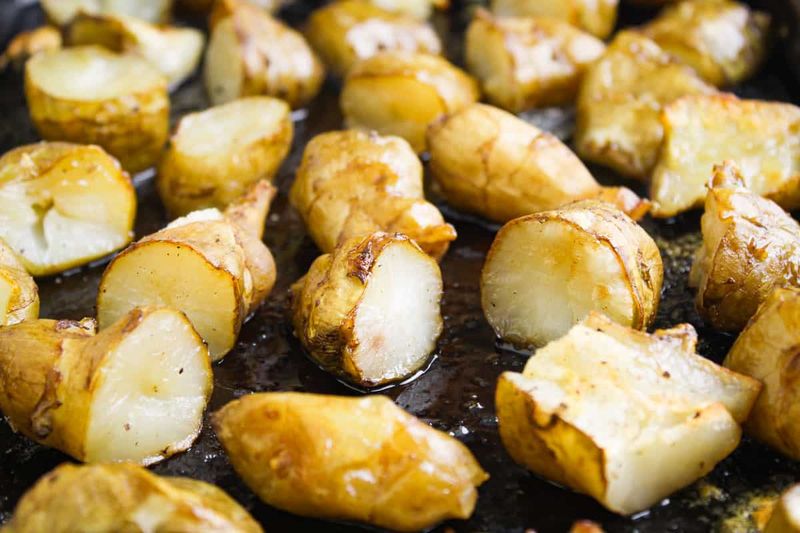
Jerusalem artichokes, or sunchokes, are a hidden gem in the vegetable world. Packed with inulin, they are especially effective at boosting gut-friendly bacteria. Their nutty, slightly sweet flavor makes them a favorite in both raw and cooked dishes. Originating from North America, they were a staple for Native American tribes. These tubers are not only nutritious but also versatile, fitting seamlessly into salads, soups, and roasted dishes. Their unique taste and health benefits make them a worthy addition to any diet.
8. Apples
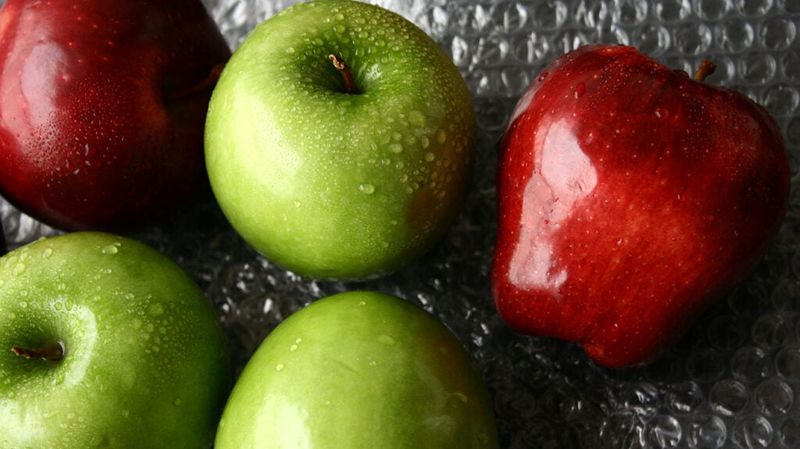
Apples, with their crisp texture and natural sweetness, are a beloved fruit worldwide. They contain pectin, a soluble fiber that works as a mild prebiotic, supporting gut health and regular bowel movements. This fiber-rich fruit has been cherished since ancient times, symbolizing knowledge and health. Whether enjoyed raw, baked, or in sauces, apples offer versatility and health benefits in every bite. Their storied history and nourishing properties make them a staple in diets around the globe. “An apple a day keeps the doctor away” rings especially true for gut health.
9. Dandelion Greens
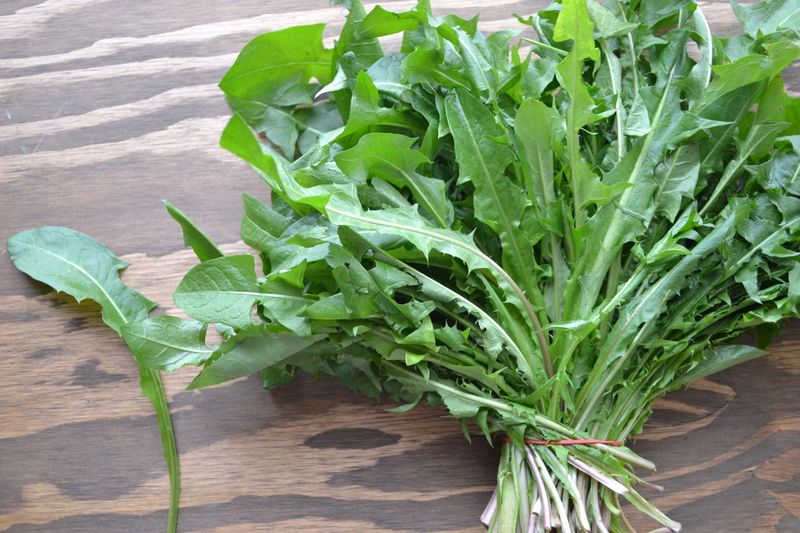
Often overlooked, dandelion greens are a bitter yet beneficial addition to any diet. Rich in inulin, they support digestion and liver health, offering a unique blend of nutrients. These greens have been used in traditional medicine for their cleansing properties, especially in European cultures. Their slightly bitter taste can be balanced in salads or lightly sautéed dishes. Embracing their health benefits and distinct flavor can transform meals into gut-friendly delights, making them a valuable inclusion for those seeking digestive support.
10. Barley
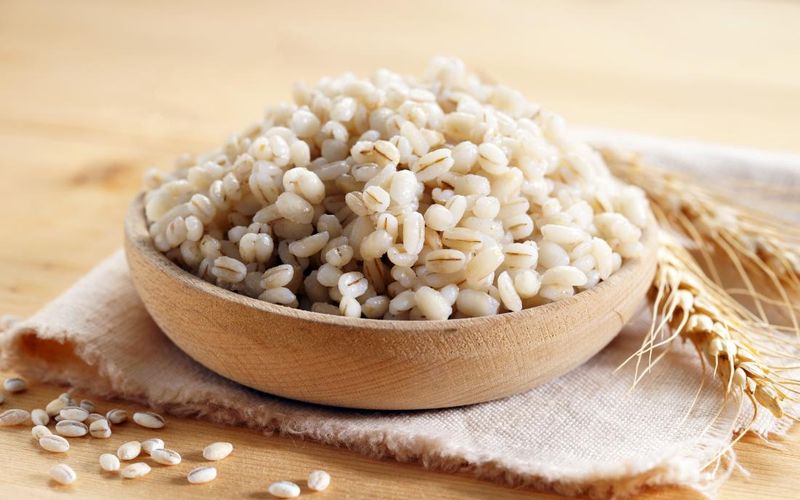
Barley, a whole grain with a rich history, is celebrated for its beta-glucan and other prebiotic fibers. These fibers promote the growth of healthy bacteria in the colon, supporting digestive health. Cultivated since antiquity, barley was a staple in ancient Egyptian diets and continues to be favored for its nutty flavor and chewy texture. Whether in soups, stews, or salads, barley adds nutritional value and a satisfying bite. Its enduring presence in kitchens worldwide speaks to its versatility and health benefits, making it a must-eat for gut health enthusiasts.
11. Oats
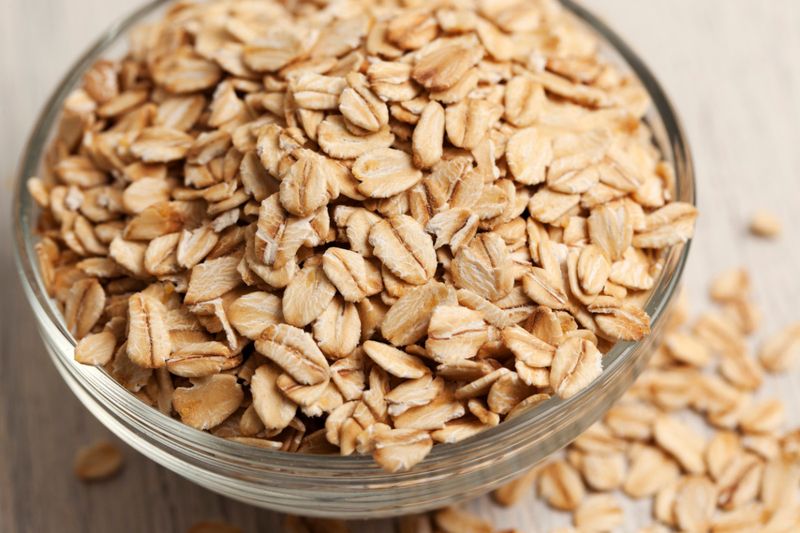
High in beta-glucan and resistant starch, oats are a nourishing staple for gut health. These fibers nourish good bacteria and improve bowel regularity, contributing to overall wellness. Oats have been cultivated for thousands of years and have become synonymous with hearty breakfasts and comforting meals. Their versatility extends beyond porridge, appearing in baked goods, granola, and more. With a reputation for supporting heart health and digestion, oats remain a beloved pantry staple, offering nourishment and satisfaction in every spoonful.
12. Flaxseeds

Flaxseeds, tiny yet mighty, are rich in fiber and lignans, feeding friendly gut microbes. Their nutty flavor and crunchy texture add interest to smoothies, yogurts, and baked goods. An ancient crop, flaxseeds have been cultivated for their health benefits and versatile uses. They help bulk up stool, aiding in digestive regularity and providing a sense of satiety. As a plant-based source of omega-3 fatty acids, flaxseeds also support heart health. Incorporating flaxseeds into daily meals can enhance both flavor and nutrition.
13. Lentils
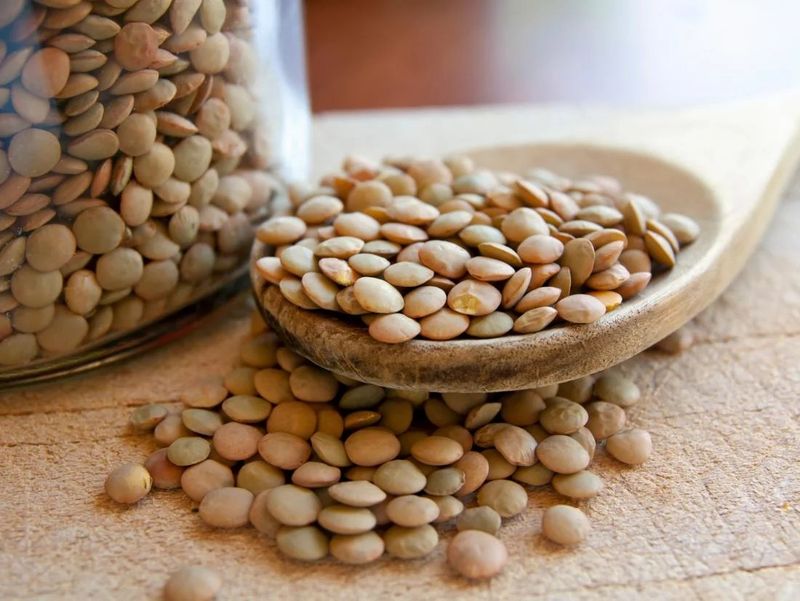
Lentils, small yet nutrient-dense, pack a punch with resistant starch and polyphenols. These components support both digestion and microbial diversity, offering a range of health benefits. Cultivated for thousands of years, lentils have been a cornerstone of vegetarian diets, providing protein and fiber. Their earthy flavor and versatility make them suitable for soups, stews, and salads, adding both texture and nutrition. As a sustainable food source, lentils contribute to both personal and planetary health, making them an excellent choice for mindful eaters.
14. Beans (Black, Pinto, Navy)

Beans, whether black, pinto, or navy, are fiber-rich marvels that gut bacteria love. Loaded with fermentable carbs, they support digestive health and regularity. Properly soaking and cooking beans can enhance their nutritional properties, reducing the potential for digestive discomfort. As a staple in many cultures, beans have provided sustenance and flavor for millennia. Their adaptability in dishes, from chili to salads, makes them a culinary favorite. For those seeking plant-based protein and fiber, beans offer a nutritious and versatile solution.
15. Seaweed
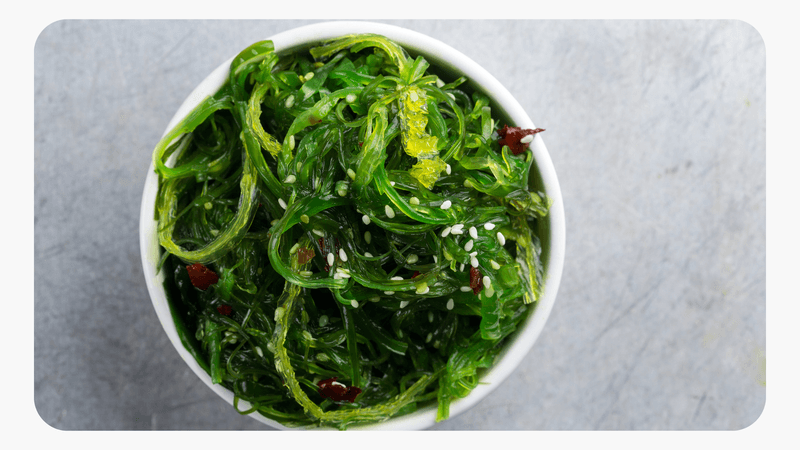
Seaweed, a marine marvel, contains unique polysaccharides like fucoidan that act as prebiotics. These compounds support beneficial bacteria growth, contributing to a balanced gut microbiota. Consumed in various forms across Asian cuisines, seaweed offers a salty, umami flavor that complements a wide range of dishes. Its health benefits extend beyond gut health, providing minerals and antioxidants vital for overall well-being. For those seeking to diversify their diet and harness oceanic nutrients, seaweed presents an intriguing and nutritious option.
16. Cocoa
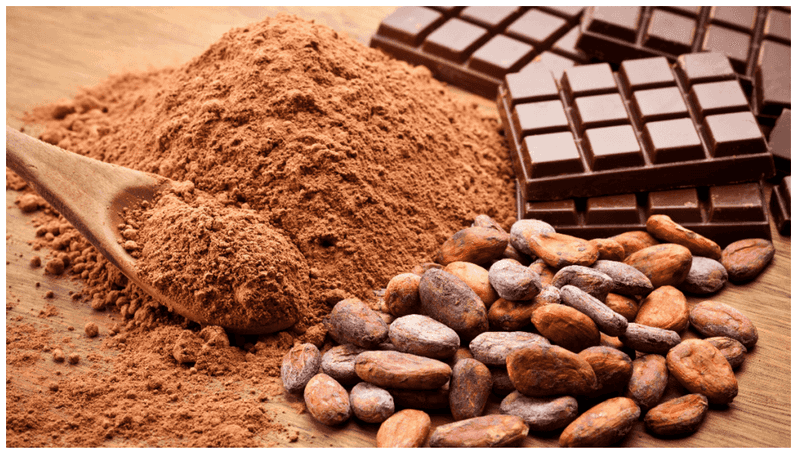
Pure cocoa, not to be confused with sugary chocolate, is a rich source of polyphenols. These compounds act as prebiotics, promoting the growth of Lactobacilli and Bifidobacteria. Known for its deep, robust flavor, cocoa has long been cherished for both culinary and medicinal purposes. Incorporating cocoa into daily routines, whether in beverages or desserts, can offer both pleasure and health benefits. Its unique taste and ability to support gut health make cocoa a delightful and health-conscious choice for chocolate lovers.
17. Almonds

Almonds, with their crunchy texture and mild flavor, are a snack favorite for health enthusiasts. High in fiber and polyphenols, they support gut flora and may increase levels of short-chain fatty acids (SCFAs). Cultivated since ancient times, almonds have been valued for their nutritional benefits and culinary versatility. Whether enjoyed raw, roasted, or as almond butter, they provide both satisfaction and health benefits. For those seeking a nutrient-dense, gut-friendly snack, almonds deliver on all fronts.
18. Cooked and Cooled Potatoes

Cooling potatoes after cooking creates resistant starch, a valuable prebiotic fiber. This transformation supports beneficial bacteria and colon health, offering a simple way to boost gut wellness. Potatoes, a dietary staple, have nourished civilizations for centuries, providing energy and sustenance. Their versatility is unmatched, with countless preparation methods to explore. Embracing the cooling technique enhances their health benefits, making them a practical choice for those focused on digestive support. This humble tuber continues to impress both in the kitchen and for gut health.
19. Konjac Root (Glucomannan)

Konjac root, known for its soluble fiber glucomannan, is a potent prebiotic. Used in shirataki noodles, it helps improve regularity and supports digestive health. This unique root has been utilized in Asian cuisines for centuries, celebrated for its versatile and low-calorie nature. With a neutral taste, konjac products absorb the flavors of accompanying ingredients, making them a popular choice for dieters. For those exploring plant-based and gut-friendly options, konjac root offers a satisfying and health-conscious solution.
20. Berries
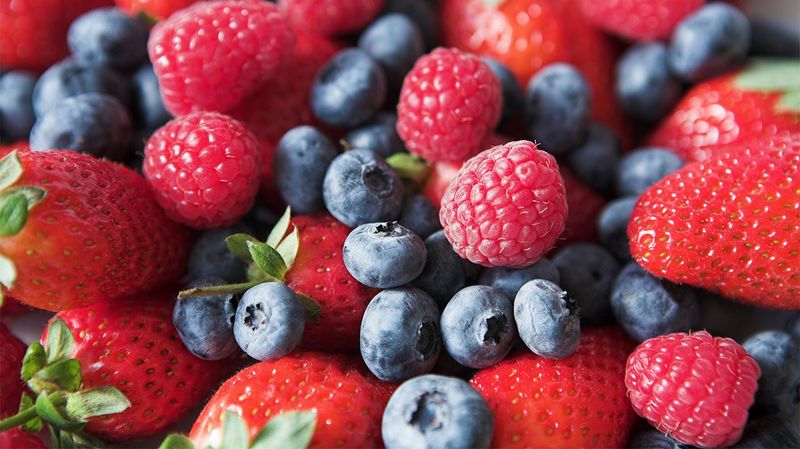
Berries, a colorful feast for the senses, are rich in fiber and polyphenols. These compounds nourish gut bacteria and reduce inflammation, supporting overall digestive health. Enjoyed for their vibrant flavors, berries have been a cherished fruit since ancient times, symbolizing abundance and vitality. Their versatility extends to smoothies, desserts, and salads, offering both taste and nutrition. For those seeking a sweet, health-enhancing treat, berries provide a delightful and beneficial option. Their antioxidant properties further contribute to their allure as a superfood.
